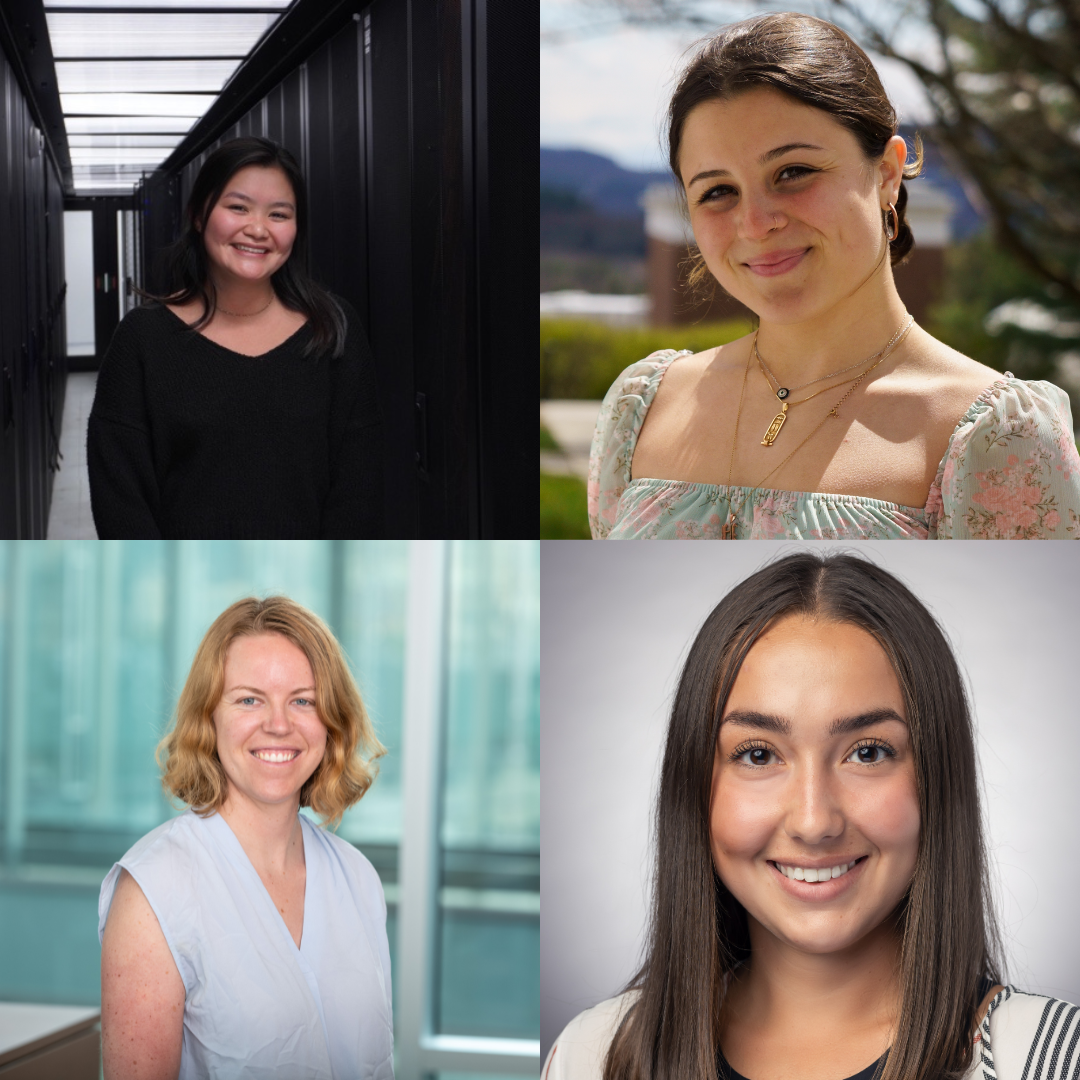Four alumnae in the Training and Experimentation in Computational Biology (TECBio) Research Experiences for Undergraduates (REU) program have turned their summer undergraduate research experiences into the pursuit of PhDs in computational biology.
These students, who received a graduate-level research experience as undergrads through TECBio, are now enrolled in the Joint Carnegie Mellon-University of Pittsburgh PhD program in Computational Biology (CPCB).
TECBio gave them the chance to gain hands-on research experience in computational biology, network with graduate students and learn more about career development opportunities.
“I would say my TECBio experience was definitely the reason I was able to do this PhD, not only to get accepted but to do well in it,” said Jane Siwek, ’22 TECBio alumna. “I came in with a very minimal background in computational biology. I’ve learned so much from that TECBio summer, just working with a project and working with biological data.”
The TECBio program accepts students from a variety of academic backgrounds, including biology, computer science and mathematics. It capitalizes on this broad knowledge to bring new perspectives and approaches to the interdisciplinary field of computational biology.
“This is really novel stuff, like using computer science and math and statistics to answer complex biological questions. It’s so cool,” said ’21 TECBio alumna Stephanie Masotti.
TECBio students gain valuable research experience that helps them succeed in graduate school.
“I really enjoyed having my own project,” said ’22 TECBio alumna Anamarie Martinez-Turak. “I thought I could see myself continuing to do this.”
During her TECBio summer, Martinez-Turak worked with a model of viral infections at a cellular level. She has continued her studies of immunology in graduate school, where she focuses on cellular signaling pathways.
Siwek is also continuing the research that she began during the TECBio program. Her adviser was Jishnu Das, assistant professor of immunology and computational biology. Siwek worked with Das to predict protein-protein interactions for language models.
“I ended up working as an intern during TECBio, and we worked on this project,” Siwek said. “When I went back to college, I continued working remotely for Jishnu.”
After being accepted into CPCB, Siwek was a direct match for Das’ lab.
“I think it really helped my transition because I can just kind of get started where I left off,” she said.
Other students credit TECBio as being a contributing factor in their decision to attend graduate school.
“I definitely would not be here if I didn’t do TECBio,” said Gabriella Gerlach, ’18 TECBio alumna. “I went to this small college, so there were no graduate students, only undergrads. The idea didn’t occur to me.”
Throughout the TECBio program, students participate in professional development seminars, where they can learn about careers in academia and industry and how to pursue them successfully. They also network with current graduate students and hear firsthand about their decisions to pursue advanced degrees.
“There are a lot of good reasons to go to grad school, but you should know what yours is,” Gerlach said.
Gerlach, who is planning to graduate this year, enrolled in CPCB to advance her skills in research.
“A PhD opens a lot of doors,” she said. “There are a lot of opportunities for different types of careers. Getting a scientist position, I think, is the most natural next step.”
For Masotti, earning a PhD was a key step to advance her career in biotechnology.
“I realized that in order to do what I want to do in the future, I would eventually need to get my PhD,” she said.
Whether they decide to focus on research, teaching or another career field, these students are steering the future of computational biology.
“My main driver is curiosity,” Siwek said. “My peers are super curious and very driven; it keeps me motivated.”


